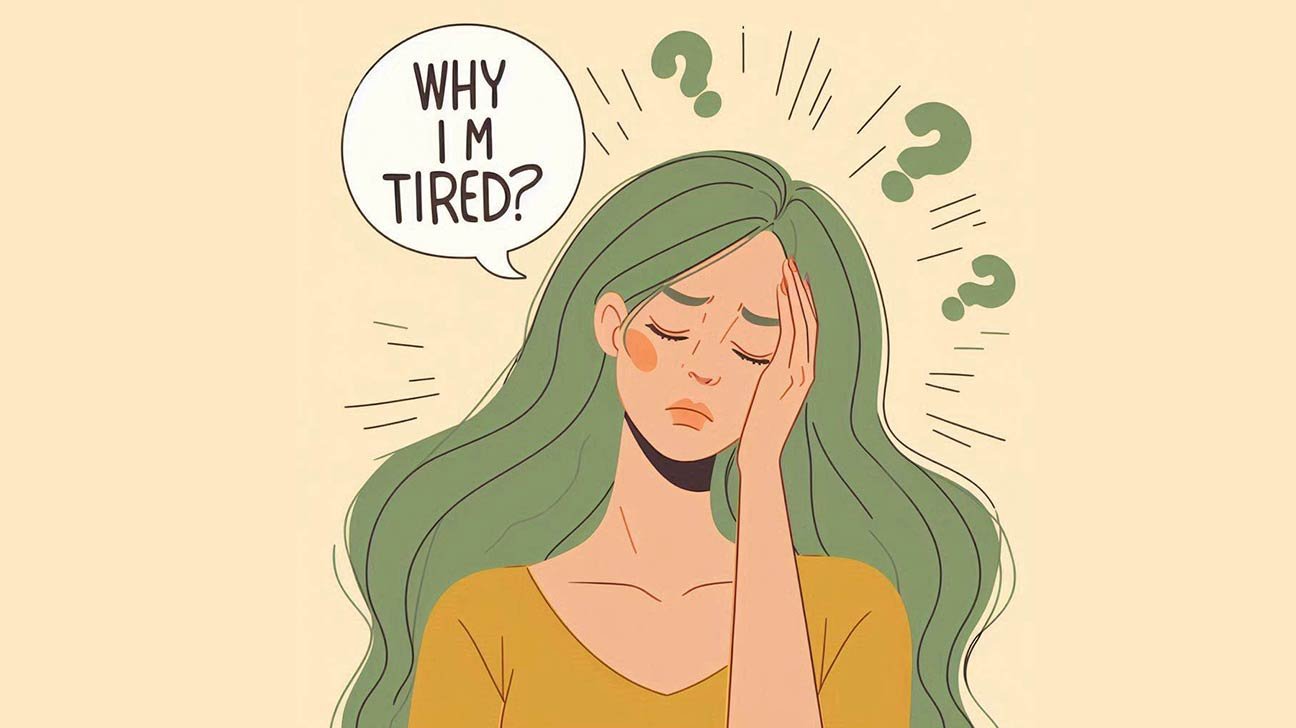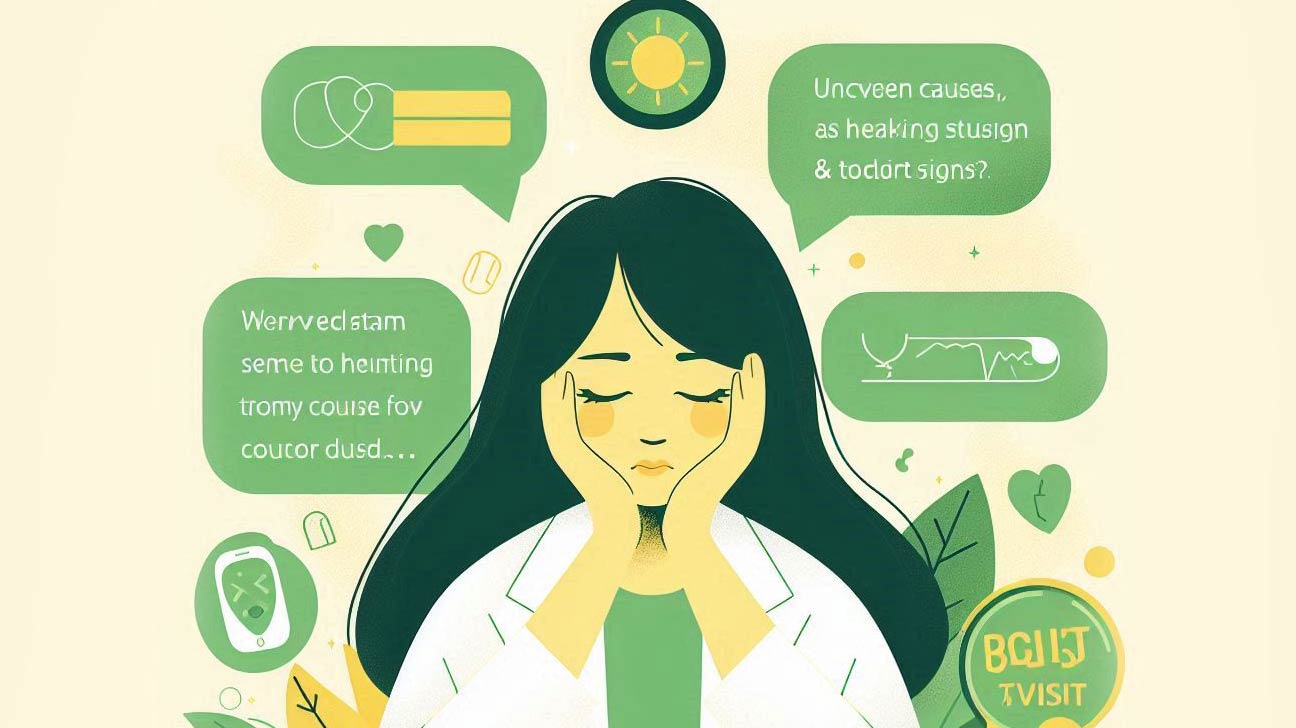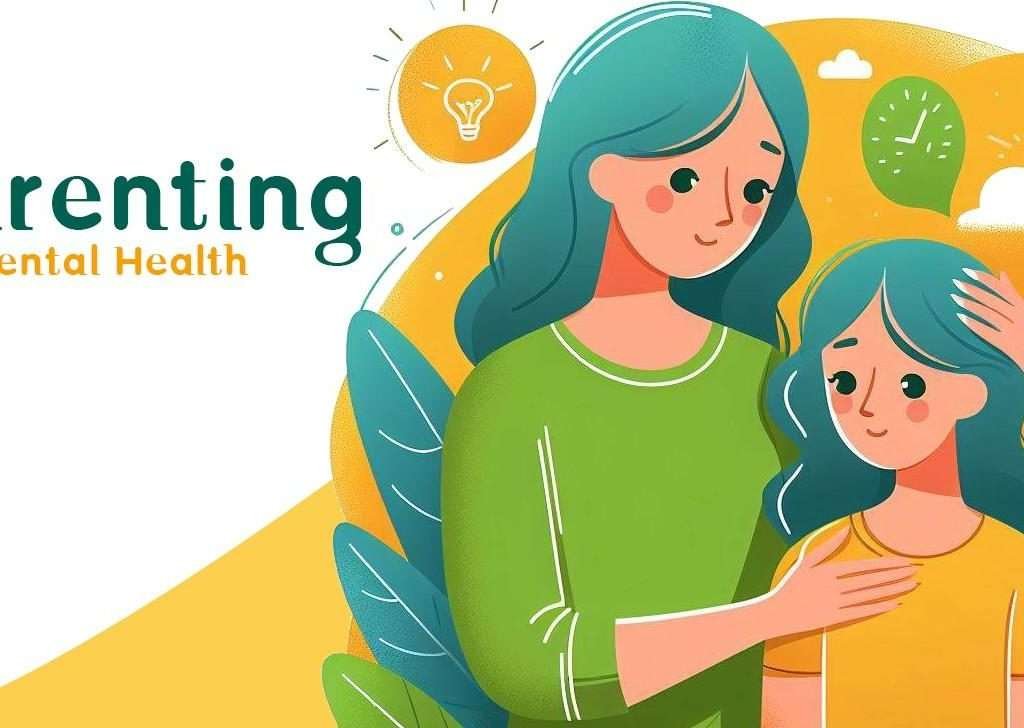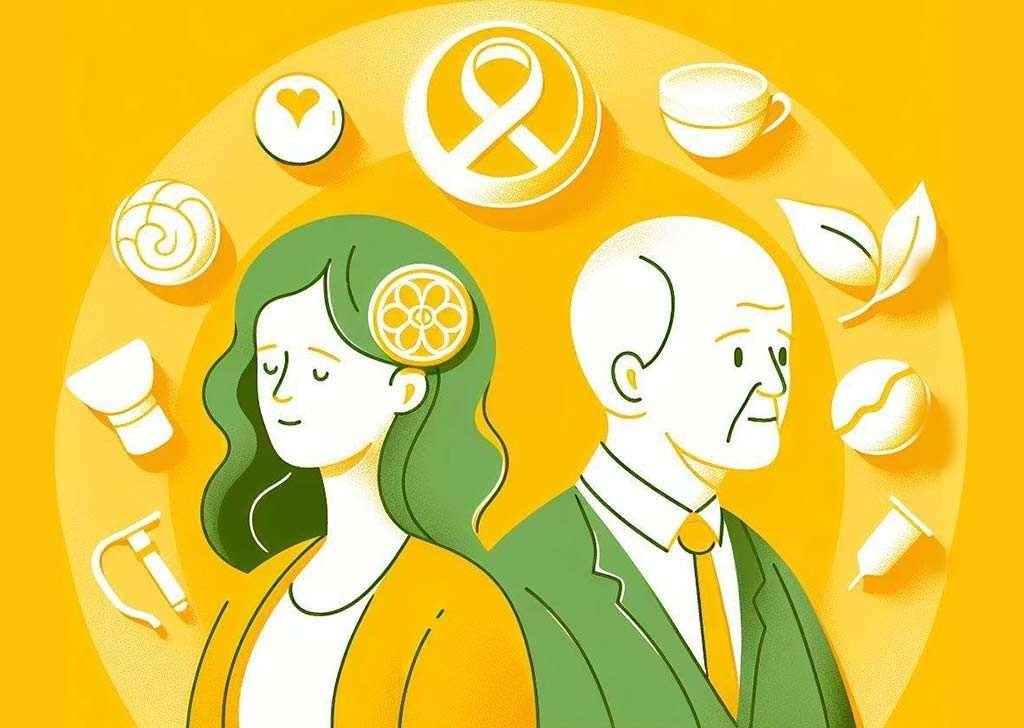Feeling tired all the time can have various causes, and understanding the underlying reason is key to improving your energy levels. Here are some common reasons why you might be feeling so tired:
1. Lack of Sleep: Not getting enough sleep or poor-quality sleep can lead to chronic fatigue. Aim for 7-9 hours of restful sleep each night.
2. Stress and Anxiety: Emotional or mental stress can drain your energy. Ongoing stress, anxiety, or depression can make you feel constantly exhausted.
3. Poor Diet: A lack of essential nutrients, dehydration, or consuming too much sugar and processed foods can cause fatigue.
4. Sedentary Lifestyle: Lack of physical activity can lead to tiredness. Regular exercise can improve energy levels and help combat fatigue.
5. Underlying Health Conditions: Fatigue can be a symptom of health issues such as:
- Thyroid disorders (hypothyroidism)
- Anemia
- Diabetes
- Sleep apnea
- Chronic fatigue syndrome
- Heart disease
6. Hormonal Changes: For women, hormonal fluctuations due to menstruation, menopause, or pregnancy can lead to tiredness.
7. Medication Side Effects: Certain medications, including those for blood pressure, allergies, and depression, may cause drowsiness.
8. Vitamin Deficiencies: Low levels of vitamins like B12, D, and iron are common causes of fatigue.
If your tiredness persists despite lifestyle changes, it’s a good idea to consult with a healthcare professional to identify any potential underlying health issues.
why am i so tired lately female quiz
Feeling tired all the time can be caused by a variety of factors, especially for women, as they may experience unique health and lifestyle challenges. While a quiz may help identify some potential reasons, it’s important to consider seeing a healthcare professional if you’re consistently tired. Here are some possible reasons behind your fatigue:
- Iron Deficiency or Anemia: Women are more prone to iron deficiency due to menstruation, which can lead to low energy levels.
- Hormonal Imbalance: Conditions like thyroid issues, menopause, or pregnancy can cause fatigue.
- Sleep Disorders: Sleep apnea, insomnia, or poor sleep hygiene might be reasons for constant tiredness.
- Stress or Anxiety: Mental health issues can affect energy levels.
- Nutritional Deficiency: Lack of vitamins and nutrients (e.g., Vitamin D, B12) can contribute to feeling tired.
- Lifestyle Factors: Poor diet, lack of exercise, or dehydration can impact your energy.
Consider trying out a quiz that can ask more personalized questions based on your symptoms to narrow down potential causes! However, don’t rely solely on a quiz—if your fatigue persists, seek medical advice to rule out underlying health conditions.

Fatigue can stem from numerous causes, ranging from poor sleep to chronic health conditions. Consult a doctor if persistent tiredness interferes with daily life.
Feeling exhausted can be a common experience, yet it often signals that your body needs attention. Adequate rest, a balanced diet, and regular exercise are fundamental for maintaining energy levels. Despite these efforts, you may still feel drained, which could indicate underlying issues such as stress, anemia, thyroid problems, or sleep disorders.
Recognizing the difference between typical tiredness and chronic fatigue is crucial. Chronic fatigue that lasts for more than a few weeks and isn’t relieved by rest should prompt a visit to your healthcare provider. They can help identify the root cause and develop a treatment plan. Prioritizing your well-being is essential; don’t ignore signs that your body is asking for help.
Why Am I So Tired?
Common Causes Of Fatigue
Do you often ask yourself, “Why am I so tired?” You’re not alone. Fatigue is a common complaint affecting many individuals. It can stem from various causes, some simple to fix, others more complex. Recognizing the common causes of fatigue is the first step towards tackling the tiredness that plagues your daily life. Let’s explore some of these factors and understand when it’s time to consult a doctor.
Many aspects of your daily routine can contribute to fatigue. It’s important to review your lifestyle choices and identify areas for improvement. Consider the following common contributors:
- Poor sleep habits – Inconsistent sleep schedules or not enough rest can leave you exhausted.
- Inadequate nutrition – A diet lacking essential nutrients can lead to a drop in energy.
- Overconsumption of caffeine or alcohol – These substances can disrupt sleep and lead to fatigue.
- Lack of exercise – Regular physical activity boosts energy levels, while inactivity can cause lethargy.
It’s crucial to assess your lifestyle and make necessary changes. For instance:
| Issue | Solution |
|---|---|
| Poor sleep | Establish a regular sleep schedule and create a restful environment. |
| Bad diet | Incorporate a variety of nutrients into your meals. |
| Low activity | Start a routine that includes moderate exercise. |
Various medical issues can lead to feelings of constant tiredness. If lifestyle changes don’t help, consider these potential medical causes:
- Anemia – A shortage of red blood cells can make you feel weak and tired.
- Thyroid problems – An underactive thyroid slows down your metabolism, resulting in fatigue.
- Diabetes – Uncontrolled blood sugar levels can sap your energy.
- Sleep disorders – Conditions like sleep apnea interrupt your sleep, leading to daytime sleepiness.
Keep an eye on symptoms and seek medical advice if you suspect a health condition might be the culprit. A doctor can run tests to diagnose and treat the underlying issue.
It’s not just your body that affects how tired you feel; your mind plays a significant role too. Psychological stressors that can cause fatigue include:
- Depression – This mood disorder often manifests as a lack of energy or motivation.
- Anxiety – Constant worry can be exhausting and interfere with sleep.
- Stress – High levels of stress put your body in a state of constant alertness, draining your reserves.
Addressing these factors may require the help of a professional. Therapies, counseling, or medication can be effective tools in managing psychological stress and reducing fatigue.
Lifestyle Factors
Feeling tired all the time can stem from numerous factors. It’s essential to understand how lifestyle choices contribute to fatigue. Identifying and adjusting these factors often leads to a significant boost in energy levels. Let’s dive into some common lifestyle habits that may be the culprit behind feeling constantly worn out.
Poor Sleep Habits
Good sleep is crucial for feeling rested. Poor sleep habits can lead to chronic tiredness. Here’s why:
- Lack of routine confuses your body’s clock.
- Too much screen time before bed hinders melatonin production.
- Irregular sleep patterns disrupt deep sleep stages.
Consistent sleep schedules and a calming bedtime routine are key for quality rest. Ensure your bedroom is dark, quiet, and cool. Limit caffeine and electronics before bedtime. If these strategies don’t help, consult a doctor. They can check for sleep disorders like insomnia or sleep apnea.
Unhealthy Diet
What you eat directly impacts your energy levels. Here are some dietary habits that can make you tired:
| Bad Habit | Energy Impact |
|---|---|
| High sugar intake | Leads to energy crashes |
| Skipping meals | Causes low blood sugar |
| Poor hydration | Results in fatigue |
Eat a balanced diet with plenty of fruits, veggies, whole grains, and lean proteins. Drink water throughout the day. If tiredness persists despite a healthy diet, seek medical advice to rule out vitamin deficiencies or other health issues.
Sedentary Lifestyle
Regular physical activity is vital for sustained energy. A sedentary lifestyle can lead to feelings of fatigue. Consider these points:
- Sitting too long may cause your body to conserve energy.
- Exercise boosts endorphins, which increase alertness.
- Lack of activity can weaken muscles, making daily tasks more tiring.
Include daily movement in your routine, even just a brisk walk. Start slow if you’re new to exercise and build up over time. If fatigue remains despite increased activity, a doctor can assess for underlying conditions like chronic fatigue syndrome.
Medical Conditions
Fatigue can be a puzzle to many. Feeling tired all the time is a sign your body is struggling. Sometimes, medical conditions are the culprits. It’s crucial to spot these early and seek a doctor’s advice. Let’s explore some common medical issues that lead to fatigue.
Anemia
Anemia is a condition where your blood lacks enough healthy red blood cells. These cells carry oxygen, so when they’re low, your body parts get less oxygen. This can make you feel very tired. Here’s what you need to know about anemia:
- Symptoms: Fatigue, paleness, fast heartbeat, and shortness of breath.
- Common Causes: Iron deficiency, vitamin B12 shortage, chronic diseases, or blood loss.
Doctors can check for anemia with a simple blood test. Treatment may include iron supplements or changes in diet. Below is a table with iron-rich foods you might add to your meals:
| Food | Iron Content |
|---|---|
| Spinach | 2.7 mg per 100g |
| Red Meat | 2.7 mg per 100g |
| Lentils | 3.3 mg per 100g |
Thyroid Disorders
Your thyroid is a small gland in your neck. It makes hormones that control how your body uses energy. With thyroid disorders, this gland can be overactive or underactive. Both can make you feel tired. Here are some key points:
- Hyperthyroidism speeds up your body’s functions, leading to symptoms like weight loss, anxiety, and tiredness.
- Hypothyroidism slows things down, causing weight gain, slow heart rate, and fatigue.
A blood test can show how your thyroid is working. Treatment might be medicine to balance hormone levels. If you feel tired and have other symptoms of a thyroid problem, see a doctor soon.
Diabetes
Diabetes can make you feel very tired too. It’s a condition where your blood sugar is too high because your body can’t use it properly. High blood sugar means your cells don’t get the energy they need. Here’s a quick overview:
- Symptoms: Besides fatigue, you might feel thirsty, need to pee a lot, and lose weight without trying.
- Diagnosis: A blood test can tell if you have diabetes. The doctor might check your fasting blood sugar or do an A1C test.
If you have these signs, don’t wait. Treatment includes medication, diet changes, and exercise. Managing diabetes can help you feel more energetic and improve your health overall.
Psychological Factors
Feeling tired can be a puzzle to solve. Often, the cause is not just physical but lies in the mind. Psychological factors play a huge role in how energetic we feel. Let’s explore how stress, anxiety, and depression can drain our energy, and when it might be time to seek a doctor’s help.
Stress
Stress is a common trigger for feeling wiped out. It’s the body’s reaction to any demand for change. When stressed, our bodies go into “fight or flight” mode, releasing adrenaline and cortisol. This can lead to:
- Sleep problems
- Strained muscles
- Headaches
- Stomach issues
Over time, these symptoms can wear us out. It’s like running a car engine on high all day. Eventually, the fuel runs low, and we feel exhausted. Here’s a quick look at how stress affects our day:
| Time of Day | Stress Impact |
|---|---|
| Morning | Feeling sluggish, hard to start the day |
| Afternoon | Low energy, trouble focusing |
| Evening | Too tired to enjoy activities |
If stress makes you feel tired most days, it may be time to talk to a doctor.
Anxiety
Anxiety can cause intense and persistent worry. This can lead to a range of symptoms:
- Racing heart
- Rapid breathing
- Dizziness
- Insomnia
These symptoms can sap your energy, leaving you feeling drained. Anxiety can make small tasks seem huge and exhausting. It’s like having an alarm that won’t switch off, keeping the body tense and alert. Here are some signs that anxiety might be affecting your energy levels:
| Sign | Explanation |
|---|---|
| Constant worry | Brain working overtime |
| Up all night | Body can’t rest and recharge |
| Scattered thoughts | Difficulty in concentrating and staying productive |
When anxiety keeps you tired and on edge most days, it may be wise to seek a doctor’s guidance.
Depression
Depression is more than just feeling sad. It can deeply affect your energy levels, causing you to feel constantly fatigued. Symptoms include:
- Loss of interest in activities
- Changes in appetite
- Feeling worthless
- Unexplained aches and pains
These symptoms can make getting out of bed feel like climbing a mountain. It’s a heavy fog that dulls the senses and saps the will to move. Consider these daily impacts of depression:
| Time of Day | Depression Impact |
|---|---|
| Morning | Wake up tired, hard to get up |
| Afternoon | Lack of motivation, wanting to sleep |
| Evening | Too tired to engage, early bedtime |
If you’re often tired and these feelings persist, a doctor can help you find ways to cope and recover your energy.
Other Possible Causes
Feeling tired can be a sign of many things. Sometimes, the cause is not clear. This post explores other reasons you might feel worn out. It’s important to know when to see a doctor.
Medication Side Effects
Many people take medicine without knowing it can make them tired. Drugs for blood pressure, allergies, and depression can cause fatigue. Here’s a list of common medicines that might make you feel tired:
- Antihistamines
- Antidepressants
- Beta-blockers
- Antipsychotics
If you take these and feel tired, talk to your doctor. Do not stop taking any medicine on your own.
Chronic Fatigue Syndrome
Chronic Fatigue Syndrome (CFS) is a tough condition. It makes you feel very tired for a long time. Doctors do not know what causes it. It’s more than just being tired. It can stop you from doing everyday things. Signs of CFS include:
- Sore throat
- Headaches
- Feeling tired even after sleeping
- Memory problems
See a doctor if you think you have CFS. They can help you find ways to feel better.
Sleep Disorders
Sleep disorders can make you feel tired all the time. Sleep apnea stops your breathing while you sleep. Insomnia makes it hard to fall asleep or stay asleep. Restless leg syndrome gives you a strong need to move your legs at night. Here’s a table showing signs of these sleep disorders:
| Sleep Disorder | Signs |
|---|---|
| Sleep Apnea | Snoring, waking up with a dry mouth, headache |
| Insomnia | Trouble falling asleep, waking up during the night |
| Restless Leg Syndrome | Need to move legs, tingling in legs |
If you have signs of a sleep disorder, talk to your doctor. They can help you find the right treatment.
When To Seek Medical Advice
Feeling tired all the time can be draining. It stops you from enjoying life to the fullest. There are many causes for feeling wiped out. Sometimes it’s simple, like a bad night’s sleep. Other times, it could be more complex, like a health condition. Knowing when to seek medical advice is key to taking care of yourself.
Persistent Fatigue
When tiredness doesn’t go away, it’s called persistent fatigue. This kind of exhaustion lasts for months. It makes daily tasks hard to do. Here’s when to talk to a doctor:
- Rest doesn’t help: You sleep but still feel tired.
- Life feels heavy: Work and fun seem too much.
- Mood swings: You feel sad or irritable often.
If this sounds like you, a doctor can help find the cause. They will ask about your sleep, diet, and stress. They might also do tests to check your health. This can include blood work to look for issues like anemia or thyroid problems.
Sudden Fatigue
Sudden fatigue hits you fast. You feel fine one day, then totally drained the next. It’s a warning sign. It could mean something is wrong. Look out for these red flags:
- Quick change: You go from lots of energy to none at all.
- Chest pain: This is serious. Call a doctor right away.
- Breathing trouble: It’s hard to catch your breath.
Don’t wait to get help if you feel this way. Sudden tiredness can be a sign of a heart attack or a severe allergy. A doctor can figure out what’s wrong and how to fix it.
Fatigue With Other Symptoms
Sometimes, fatigue with other symptoms can show up. It’s like your body is sending out an SOS. Here are some symptoms to watch for:
- Fever: You might have an infection.
- Weight loss: Losing pounds without trying can be a sign of a health issue.
- Pain: Constant aches can point to something more serious.
If you have these symptoms, see a doctor. They will talk to you and might run tests. This could include scans or other checks. They will try to find out why you feel this way. Then, they can start the right treatment.
Diagnostic Process

Finding out why you feel so tired is the first step to feeling better. A doctor can help you figure out what’s going on. They will use a diagnostic process to find the cause. This process often includes a physical exam, blood tests, and sometimes sleep studies. Let’s explore each of these steps to understand how they help in finding the cause of your tiredness.
Physical Examination
When you tell your doctor you’re always tired, they’ll start with a physical exam. This helps them check your overall health. Here’s what it might involve:
- Checking your heart rate and blood pressure
- Listening to your heart and lungs
- Examining your throat, ears, and nose
- Feeling your abdomen to check organs
- Looking at your skin for signs of illness
A physical exam might also include tests like checking your reflexes. This tells the doctor a lot about your nervous system. They might also ask you to walk or do simple movements. This shows how well your body is working. If they find anything unusual, they may suggest more tests.
Blood Tests
Blood tests are a common way to find out why you’re tired. They can check for many different things. Here are some reasons your doctor might order blood tests:
- To look for signs of anemia
- To check your thyroid function
- To see if you have an infection
- To measure your blood sugar levels
- To check for vitamin deficiencies
After taking a little bit of your blood, a lab will check it. They might use a table to show what’s normal and what’s not. This helps your doctor understand what might be wrong. If your blood shows something is off, your doctor will tell you what steps to take next.
Sleep Studies
Sometimes, the reason you’re tired is because you’re not sleeping well. Sleep studies can help find out if you have a sleep disorder. Here’s what might happen in a sleep study:
- You spend the night at a special clinic
- They check your brain waves, heart rate, and breathing
- They see how often you wake up
- They look at your eye and leg movements
After the study, the doctors will have a lot of information. They can tell if you have sleep apnea or another sleep problem. If they find something, they’ll suggest ways to help you sleep better. This might mean using a special machine at night or changing your habits.
Treatment Options
Feeling exhausted is a common experience for many. It can stem from various causes, such as poor sleep, diet, stress, and underlying medical conditions. Identifying the root cause is crucial. Sometimes, simple adjustments can make all the difference. But when fatigue persists, it’s important to seek medical advice. Treatment options can vary widely based on the cause of tiredness. Let’s explore some effective strategies to combat fatigue.
Lifestyle Changes
Making positive adjustments to daily habits often helps alleviate tiredness. Consider the following steps:
- Improve sleep hygiene: Stick to a consistent sleep schedule and create a restful environment.
- Exercise regularly: Moderate physical activity boosts energy levels and improves sleep quality.
- Healthy diet: Opt for whole foods rich in nutrients to fuel the body efficiently.
- Stay hydrated: Drink plenty of water throughout the day to prevent dehydration.
- Limit caffeine and alcohol: Both can affect sleep patterns and lead to tiredness.
Here’s a simple table to help you track lifestyle changes:
| Change | Goal | Benefit |
|---|---|---|
| Sleep | 7-9 hours | Restoration |
| Exercise | 150 minutes/week | Energy boost |
| Diet | Balance | Nutrition |
Medication
In some cases, medication might be necessary to address fatigue. This is particularly true for conditions like anemia or thyroid issues. Doctors may prescribe:
- Iron supplements: For anemia caused by iron deficiency.
- Thyroid medication: To manage hypothyroidism.
- Stimulants: For sleep disorders like narcolepsy.
It’s important to follow the doctor’s guidance and report any side effects. Never self-medicate as this can lead to complications. A balanced approach with regular monitoring is key to managing tiredness through medication.
Therapy
When tiredness is linked to mental health, therapy might be the best course of action. Methods such as:
- Cognitive Behavioral Therapy (CBT): Helps in managing stress and anxiety.
- Mindfulness: Teaches relaxation techniques and promotes mental well-being.
- Sleep therapy: Addresses issues like insomnia.
Working with a therapist can provide tools to cope with emotional factors contributing to fatigue. Regular sessions and practicing techniques learned in therapy can significantly reduce tiredness over time.
Prevention
Feeling tired all the time can be frustrating. It could be due to many reasons. Sometimes, it’s a sign to see a doctor. Yet, many times, we can prevent it. Let’s look at how to stop feeling so tired.
Healthy Sleep Habits
Good sleep is key to feeling energetic. Here are some tips:
- Stick to a schedule: Go to bed and wake up at the same time every day.
- Keep your room cool: A cooler room can help you sleep better.
- Turn off screens: Bright screens before bed can make it hard to sleep.
Also, try to make your bedroom a place just for sleep. This means no work or TV in bed. A table to show how room setup affects sleep:
| Room Setup | Effect on Sleep |
|---|---|
| Dark and Quiet | Improves Sleep Quality |
| Light and Noisy | Reduces Sleep Quality |
Getting enough sleep is a big step in feeling less tired.
Balanced Diet
Eating right is also important. A balanced diet gives you energy. Here are some tips:
- Eat fruits and vegetables: They are full of vitamins.
- Choose whole grains: They keep your energy levels stable.
- Stay hydrated: Drink plenty of water.
Avoid too much sugar and caffeine. They can make you crash later. A table to show good food choices:
| Food Type | Examples |
|---|---|
| Fruits and Vegetables | Apples, Carrots |
| Whole Grains | Oats, Brown Rice |
Eating well helps you feel good and less tired.
Regular Exercise
Exercise might seem tiring, but it actually gives you more energy. Here’s how to start:
- Find activities you like: You’ll stick with them longer.
- Start slow: Don’t push too hard at first.
- Make it a habit: Try to be active most days.
Even a short walk can help. Exercise makes your heart and muscles strong. It also helps you sleep better. A table to show the benefits of different exercises:
| Exercise Type | Benefits |
|---|---|
| Walking | Improves Heart Health |
| Yoga | Reduces Stress |
By moving more, you’ll feel less tired and more lively.
Frequently Asked Questions

When Should You See A Doctor About Tiredness?
See a doctor about tiredness if it persists for over a month, disrupts daily life, or is accompanied by symptoms like pain, depression, or breathlessness. Immediate medical attention is necessary if it’s sudden, severe, or includes unexplained weight loss.
When Should I Be Concerned About How Tired I Am?
Consult a doctor if persistent fatigue interferes with daily life, lasts several weeks, or is accompanied by other symptoms.
What Is Excessive Tiredness A Symptom Of?
Excessive tiredness can indicate various conditions, including anemia, thyroid disorders, sleep apnea, diabetes, depression, or chronic fatigue syndrome. It’s essential to consult a healthcare professional for accurate diagnosis and treatment.
What Is The Medical Reason For Being Tired All The Time?
Chronic fatigue can result from various medical issues including anemia, thyroid disorders, diabetes, depression, and sleep apnea. It’s essential to consult a healthcare professional for a proper diagnosis and treatment.
Conclusion
Feeling exhausted can stem from numerous factors, from lifestyle choices to medical conditions. If persistent tiredness hampers your daily life, it’s time to consult a healthcare professional. Remember, taking care of your well-being is paramount; don’t hesitate to seek medical advice when fatigue becomes a constant companion.



